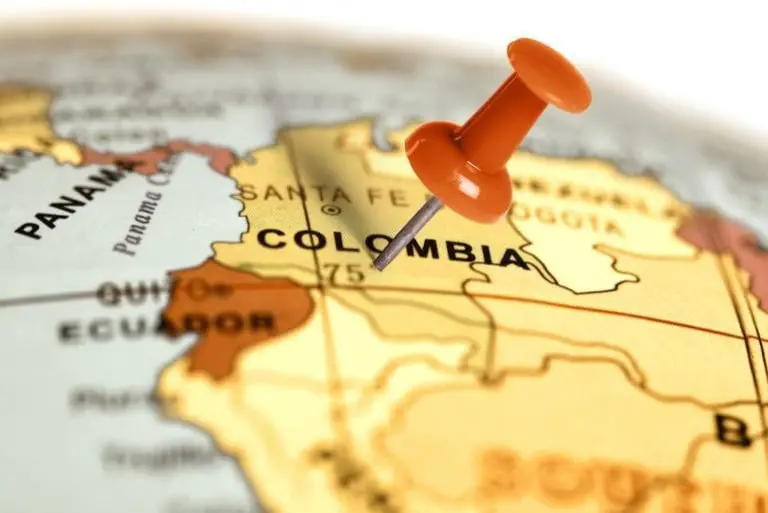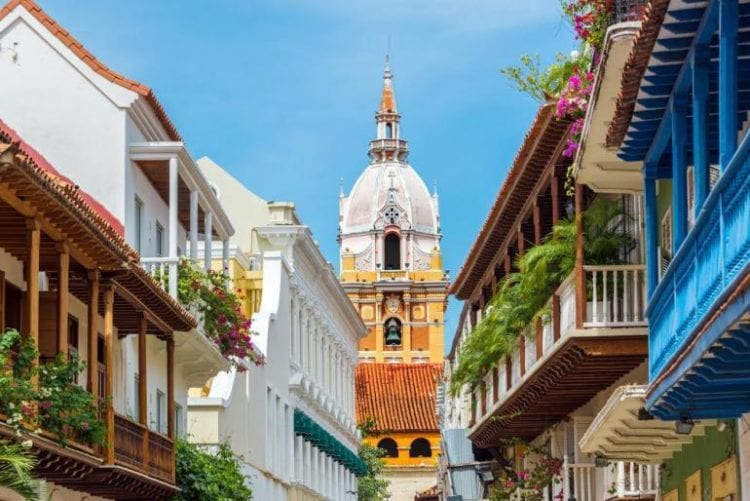Liraz Postan
Liraz is an International SEO and Content Expert with over 13 years of experience.

With more than 99.2% of the population of Colombia speaking the Spanish language it would appear that Colombia must be one of the more linguistically homogeneous countries on the planet.
With more than 99.2% of the population of Colombia speaking the Spanish language, it would appear that Colombia must be one of the more linguistically homogeneous countries on the planet.
However, the Spanish spoken in Colombia (known as Colombian Spanish by linguists) is quite different to the traditional Spanish which is spoken in both Spain and other Spanish-speaking countries.
In addition, there are many regional dialects of this language, which can sometimes greatly affect the version of Spanish spoken between one region and another. These are dialects that have grown and developed as the population make-up of specific regions has altered over time.
Besides the Spanish language, there are also many other languages to be heard in Colombia; however, in general, these languages are used by small pockets of the population. The Colombian government recognizes 65 Amerindian or tribal languages, in addition to two Creole languages – Palenquero and Creole English.
Romani is a gypsy language, and this language is also recognized. In the Santa Catalina Islands, San Andreas, and Providencia, the standard English language has been granted official status.
Obviously, Spanish is the most common language in Colombia, but the Ethnologue database states that there are 101 languages in Colombia, so, according to this estimate, Colombia would be one of the most linguistically diverse nations both in the Americas, and the world.
It seems that there is a slight difference of opinion on the exact number of languages spoken in Colombia because some linguistic experts maintain that certain languages are stand-alone languages, while other experts view them as dialects or varieties of the same language.

According to language experts, the best estimate is that, as of the year 2015, there are approximately 70 languages spoken in Colombia. There are approximately 850,000 people who speak native languages, with most of these languages belonging to the Arawakan, Chibchan, Cariban, Tucanoan, Saliban, Bora-Witoto, Guajiboan and Barbacoan families.
Colombia has 65 existing indigenous languages today, and these can be divided into 12 distinct language families – 10 of these languages are isolated or not yet classified. These indigenous languages include:
Only seven families present at the regional level – Tucano, Bora, Witoto, Macu, Saliba, Guahibo and Chocó; while the ten isolated languages are Yaruro, Yagua, Tinigua, Ticuna, Páez, Kamentsá, Guambiano, Cofán, Awa-cuaiquer, and Andoque.
The combination of these indigenous languages with the languages brought by the slaves, including the various dialects of the conquistadors, has meant that the Colombia we know today has a very interesting combination of languages.
As per the Colombian Constitution, the languages spoken by the various ethnic groups in the different districts and regions of Colombia are considered to be official languages. Non-Spanish languages in some regions of Colombia are the medium of education in schools, while other schools are bilingual in that they offer instructions in both the ethnic language of that district and Spanish.
In Colombia, the most commonly spoken language is Spanish, which is a Romance language of European origin. The grammar of this language is derived from Latin, in addition to Italian, French, Romanian, and Portuguese. It also includes some elements of Arabic, Greek, and Germanic language influences, but these influences are only noticeable in the vocabulary.
Both words and sentences in the Spanish language can sometimes be very complex and long – so complex in fact that non-native speakers of this language will probably have great difficulty in mastering the wide range of tenses. The verb ‘to be’ is a Spanish translation of both ‘ser’ and ‘estar’ and non-native speakers have a difficult task in understanding the difference between these two.
Meanings of phrases in Spanish be expressed through intonation, like affection, anger, or politeness; but one must always be cautious because the tone used can often alter the meanings of the same words. Native speakers of this language like to use augmentative and diminutives, and these suffixes alter a lot depending on the region.
The Spanish language of Colombia is said to be one of the most beautiful forms of spoken Spanish in South America, with its clear pronunciation and almost musical intonation. The many different dialects of Spanish spoken throughout the country have been greatly influenced by the diverse ethnic background of so many the Colombian people.
Generally, the form of Spanish spoken in Colombia can be defined as a grouping of the various varieties of the many languages spoken. This term has more geographical relevance than linguistic relevance because the dialects spoken throughout the various regions of Colombia are so diverse.
Located in Colombia’s capital of Bogotá is the Caro y Cuervo Institute, which is Colombia’s main institution for promoting the study of both the language and literature of Colombia and Spanish America.
Bogotá is a conservative but educated variety of Spanish, which holds high prestige amongst Spanish speakers throughout the Americas. For the translation of any documents either to or from any version of the Spanish language, why not contact One Hour Translation today. Whether your Spanish translation is a technical or legal translation in nature, small or large in size, our highly experienced translators can complete accurate translations from any source material.
The slang speech used in Colombia has become very popular and is frequently used in pop culture, particularly in the barrios of the big cities. In Medellín and the Paisa region, the local slang is known as ‘Parlache’. Many commonly used slang expressions are now being used outside their original areas and have become understood throughout Colombia. An example of some of these slang words which have been popularized by the media include –
Some of the regional dialects of Colombia include –
Our professional English to Spanish translators has a vast amount of experience with the Spanish language, including Colombian dialects.
What our customers are saying